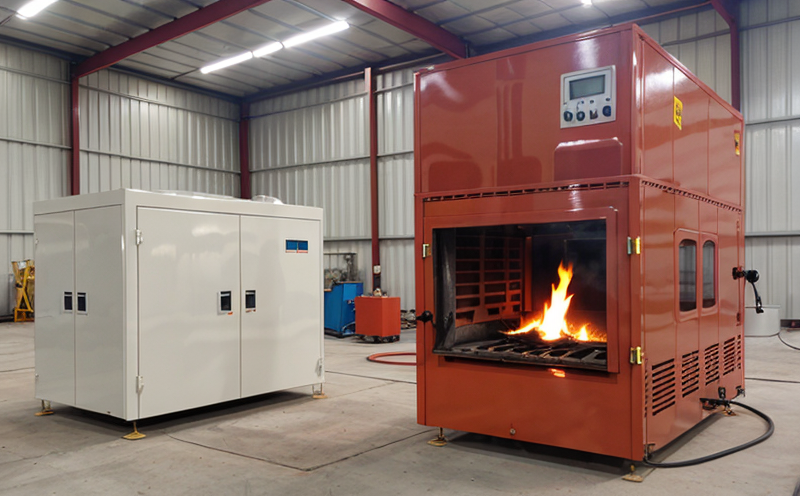ISO 11359 Thermal Expansion of Plastics Testing
The ISO 11359 standard defines a method to determine the linear coefficient of thermal expansion (CTE) of plastics. This test is crucial for materials used in demanding engineering applications, where temperature variations can significantly impact performance and reliability.
This procedure involves subjecting specimens under controlled conditions to varying temperatures and measuring their dimensional changes using precision instruments like dilatometers or micrometers. The results provide critical insights into the behavior of plastics across a wide range of operating environments.
The testing process begins with selecting appropriate specimens, typically cut from larger parts or manufactured specifically for the test. Specimen preparation must be precise to ensure accurate and repeatable measurements. Once prepared, these samples are placed in a controlled environment where they undergo gradual heating and cooling cycles while being monitored by high-precision measurement systems.
The data collected during this process is analyzed according to ISO 11359 guidelines, which specify the calculation of CTE based on initial and final dimensions at specified temperatures. This information helps engineers predict how a material will behave in various thermal conditions, aiding in design optimization and ensuring compliance with international standards.
Understanding the thermal properties of plastics is essential for industries ranging from automotive manufacturing to aerospace engineering. By accurately assessing these characteristics, manufacturers can make informed decisions about material selection and process adjustments, ultimately leading to safer, more efficient products.
The importance of this testing cannot be overstated. Accurate CTE values contribute significantly to product longevity, especially in high-temperature applications or those exposed to extreme temperature fluctuations. For instance, in automotive parts subjected to frequent heating cycles, knowing the exact thermal expansion coefficient allows for better design and manufacturing practices.
In addition to its practical applications, ISO 11359 testing also supports ongoing research efforts aimed at developing new materials with improved thermal stability. Researchers rely on consistent CTE data provided by this test method to enhance their understanding of plastic behavior under different conditions, paving the way for innovative solutions.
Furthermore, compliance with international standards like ISO 11359 is increasingly becoming a requirement in many sectors due to heightened safety regulations and quality assurance measures. Companies must ensure that their products meet these stringent requirements; otherwise, they risk non-compliance penalties or reputational damage.
To sum up, the ISO 11359 Thermal Expansion of Plastics Testing plays a pivotal role in ensuring reliable performance across diverse industries by providing accurate data on plastic behavior under varying temperatures. Its significance lies not only in its technical aspects but also in its broader implications for product development and regulatory compliance.
Benefits
- Ensures consistent quality through precise measurement of thermal expansion coefficients.
- Aids in optimizing material selection for specific applications requiring high temperature stability.
- Supports research and development efforts aimed at improving the performance of plastics used in demanding environments.
- Facilitates compliance with international standards, enhancing product reputation and marketability.
- Promotes safer designs by identifying potential weaknesses associated with thermal stress.
Eurolab Advantages
Eurolab offers comprehensive ISO 11359 Thermal Expansion of Plastics Testing services tailored to meet the needs of various industries. Our experienced team specializes in providing accurate and reliable results, ensuring that clients receive actionable insights into their materials' performance.
Our state-of-the-art facilities are equipped with advanced measuring instruments capable of delivering precise data even under challenging conditions. This capability is particularly important for applications involving extreme temperatures or rapid temperature changes.
We employ rigorous quality control processes throughout the testing process, from specimen preparation to final analysis and reporting. Our commitment to excellence ensures that every result meets international standards and exceeds customer expectations.
Our diverse portfolio of clients spans multiple sectors, including automotive, aerospace, electronics, and construction materials. By leveraging our expertise across these industries, we can offer tailored solutions that address unique challenges faced by each sector.
In addition to technical proficiency, Eurolab prides itself on delivering exceptional customer service. Our dedicated team of experts is always available to answer questions and provide guidance during the testing process. They work closely with clients to ensure that all aspects of their project are addressed effectively.
Quality and Reliability Assurance
- Use of certified calibration standards ensuring accuracy in measurements.
- Incorporation of advanced data analysis techniques to enhance reliability of results.
- Ongoing training for personnel to maintain proficiency with latest testing methodologies.
- Implementation of strict quality control measures at every stage of the process.
Eurolab adheres strictly to ISO 11359 and other relevant international standards, ensuring that all tests conducted meet stringent requirements. Our commitment to quality is reflected in our meticulous attention to detail and unwavering dedication to accuracy.
We employ cutting-edge technology and methodologies to ensure consistent and reliable results. Regular audits and reviews are conducted internally to maintain high levels of performance across all areas of operation.





